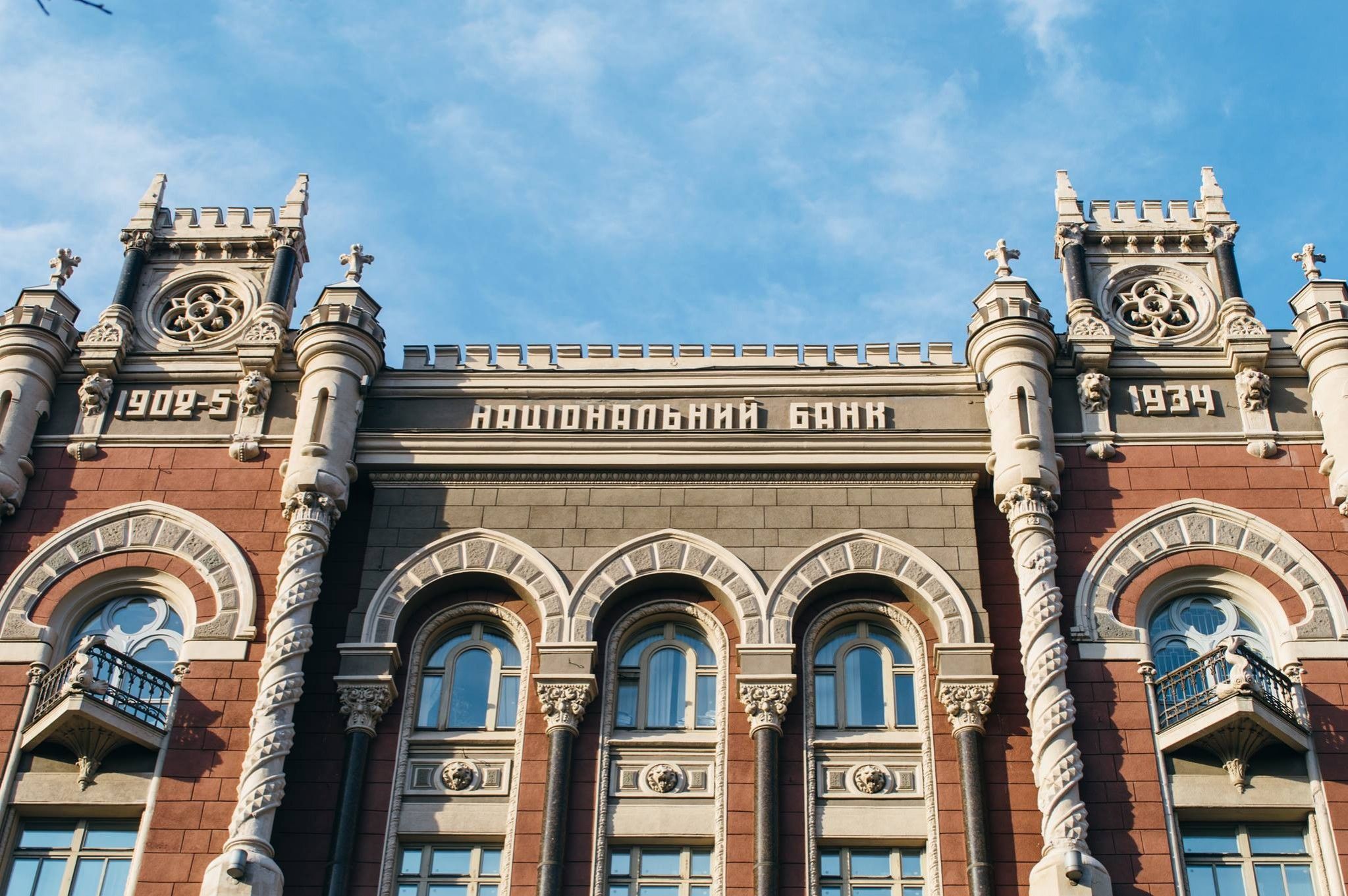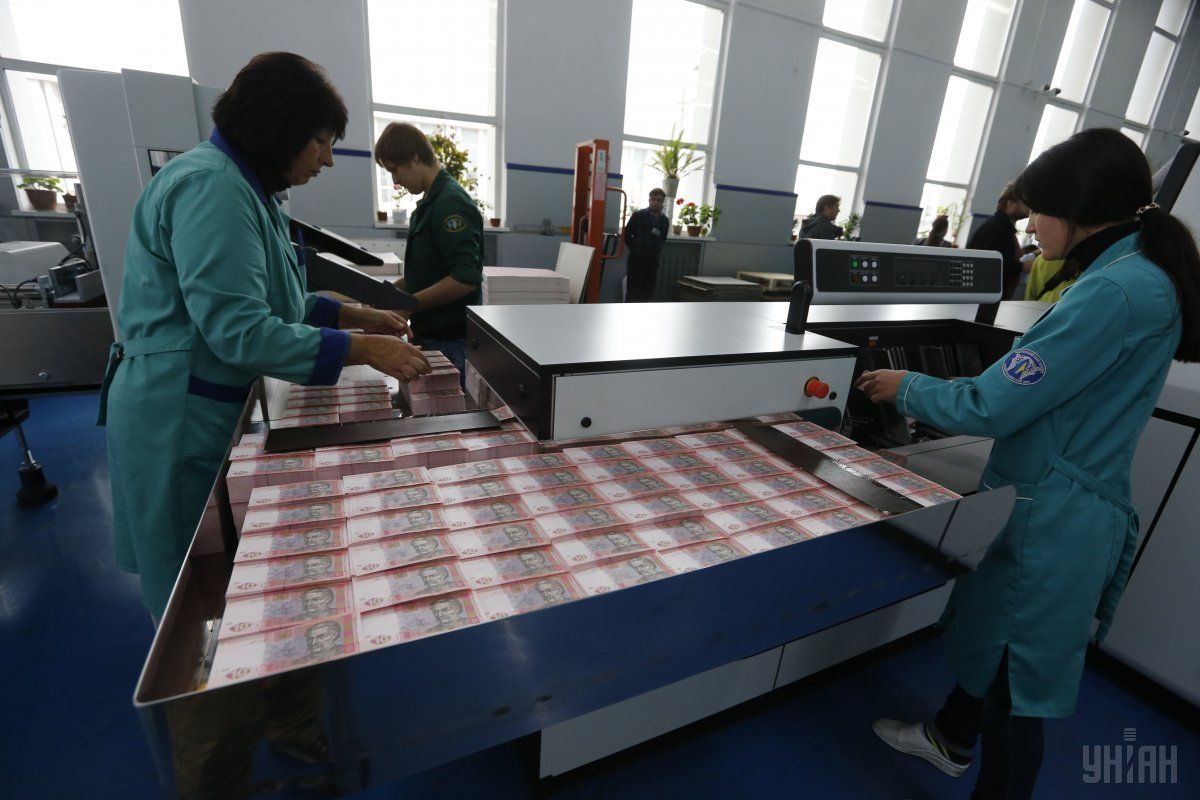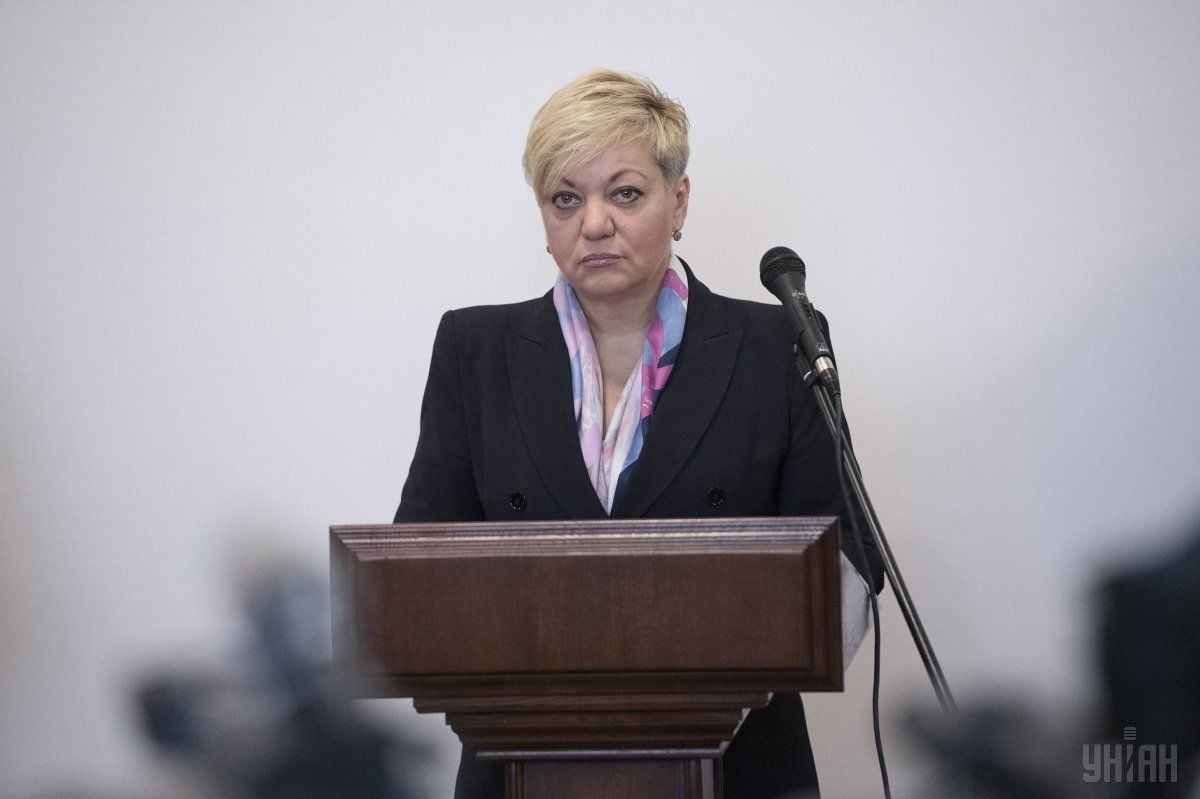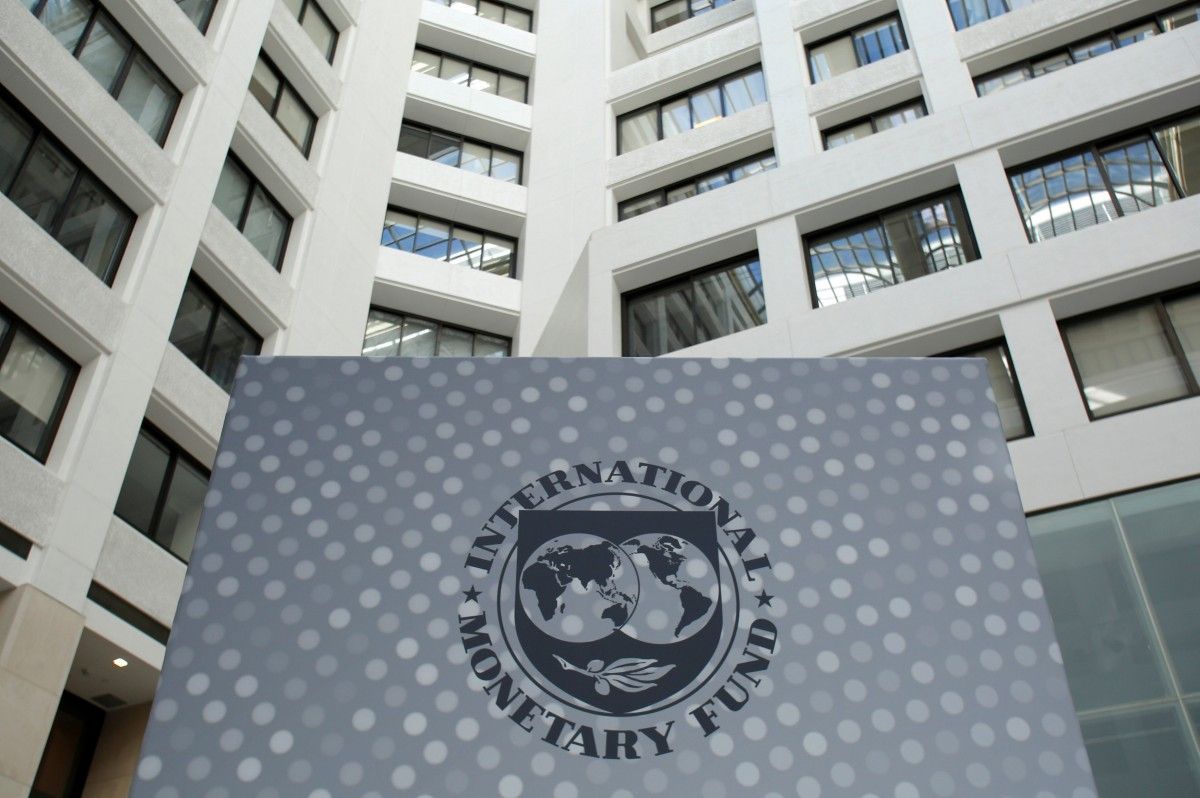
Will NBU cope with role of "investment locomotive"
The renewed Council of the National Bank of Ukraine will meet December 21 to take a key decision within its competence – to approve the next year’s monetary policy principles, which will be crucial for price stability, as well as the stability of the hryvnia and the prospects for economic growth.
A heated debate started in the Council of the National Bank, renewed two months ago. Some of its members insist on the need to continue to adhere to the policy of reducing inflation through a key rate, while the others offer to make the NBU an "investment locomotive" that will stimulate economic growth by funding the promising sectors of Ukraine’s economy.
This, economic terminology, boring at first glance, will actually determine the direction of development of the national economy and the financial situation Ukrainians for years to come.
For the upcoming meeting of the NBU Council. a draft decision was prepared, proposing to keep the policy vector next year and in the medium term, continuing the trend of reducing inflation: to 12% at the end of this year, 8% in 2017, 6% in 2018, and 5% in 2019.
"Low and stable inflation is one of the main pillars of sustainable economic growth, which can be provided by the central bank; and the NBU will implement its monetary policy based on inflation targeting, which is the most favorable monetary regime for creating an environment of low and stable inflation," as stated in the draft decision.
NBU’s new role

Head of the NBU Council, ex-Minister of Economy Bohdan Danylyshyn believes that the policy of inflation targeting, implemented by the National Bank, has brought tangible results, but at this stage, the promotion of economic growth with the active participation of the state is worth considering.
"First, the state should abandon the consumer development model in favor of the technology development. Second, it needs to set an ambitious goal – GDP growth by 5%-7% annually over the next decade. In addition, this policy requires systemic and radical reforms through improving the business environment and substantial restructuring of the existing structure of the economy," he said.
Danylyshyn believes that it is time to abandon further exploitation of raw material production and to stimulate production of goods and high value-added services, the development of a modern infrastructure, innovation, and resource efficiency.
"Ukraine needs large-scale investment, and it’s the government and the National Bank who should take up the role of an investment locomotive. The government should identify national priorities, which could be the drivers of economic growth and require investment support. In my opinion, it is necessary, at the expense of public funds and international financial organizations to form the Ukrainian economy development fund for the implementation of such support," said Danylyshyn.
Another member of the NBU Council, Vasyl Furman, in his speech at a conference in Kyiv said that an active debate is really underway in the Council regarding the economic development strategy and NBU participation in this process.
"No one disputes the idea that the National Bank will be engaged in inflation targeting. This is a right thing to do. Most of the Council members, with whom I spoke, support it," he said. On the other hand, according to Furman, at the meetings with experts, organized by the Public Collegium under the NBU Council, many talked about the need for a new economic policy.
"Whatever monetary policy we adopt, no matter how cool it is, if there is no new economic policy, of which the NBU monetary policy is part, we cannot create an economic miracle," he said.
Speaking at the conference, NBU Council member Viktor Kozyukov expressed support for the current NBU policy: "Why is it politically attractive to talk about the incentives? Of course, no one is pleased with this pace of GDP growth. But let's be objective and recognize that this 1% of GDP growth is recorded in conditions of contraction in global demand, collapse in commodity markets, a slowdown in China's economy, at the time of war, and amid a very severe drop in economic activity. In such circumstances, it would be a frank exaggeration to say that a 6%-7%-8% growth is normal for us only because we are a poor country and the competition effect should work," he said, stressing that in the Ukrainian realities, only a lower growth trajectory is possible, while any aggressive steps to improve this trajectory are associated with higher risks.
Deputy Head of the Council, Professor of the University of Pittsburgh and the Honorary President of the Kyiv School of Economics Tymofiy Mylovanov also spoke in support of the current policy of the NBU. He believes that at this stage, cash injections into the economy pose a threat of a repetition of the 2014 scenario.
"I believe that the Ukrainian economy has not yet stabilized, and the launch of money issue today may explode it. Once again, there will be inflation, and we will have to start all over again. There is money in the banking system, while the problems of the economy are due to the lack of structural reforms," he said.
According to him, the idea of launching the economy through a "productive money issue" is contrary to the key task of the NBU to support price stability, while the consequences of the implementation of this idea would be devastating.
NBU Governor Valeria Gontareva, who is a member of the Council ex officio, also believes that monetary stimulation of the economy is premature.

"There is a discussion but there is no alternative. We cannot reach price stability in the situation that has developed today,” she said at a traditional briefing on the NBU monetary policy. "Up to now, I have not seen a single proposal, except that submitted to the Council by our Board."
In this regard, on December 8, the National Bank left its key rate unchanged, at 14% per annum, after its consecutive decline for the past six months, fearing additional inflation risks.
The NBU has once again stressed that the Ukrainian banks have sufficient liquidity for lending to the economy, but at the same time, the country is in dire need of reform of the law enforcement and judiciary, and strengthening the protection of creditor rights.
Several members of the Council have not yet voiced in public their opinion on the development of the strategy. In addition, President of Ukraine Petro Poroshenko on his quota may appoint two more members of the Council, and this can happen at any moment – it would be enough to sign and promulgate a presidential decree. And these new appointments could change the balance of power in favor of either camp.
Same old, same old
What could be the scenario for the national economy as a result of the change in priorities of the National Bank? There is no consensus on this matter among the experts and the members of the NBU Council.
The representative of the Ukrainian Society of Financial Analysts, Anatolii Drobyazko, believes that the launch of the economy in the current environment only by means of curbing inflation is impossible, and the NBU will have to print money and send it to the areas of industry in need.
"If GDP falls, there will be no other tool. Through the export credit agency, it is necessary to support those who can produce goods with high added value. This is machine building, aviation industry, and breweries. It could also be furniture producers, so that they sell furniture instead of timber. We must help those who are selling the final product," he said.
The expert referred to his experience when he was an adviser to the head of the National Bank after the crisis of 1990s. "My expertise tells me that such emission channel as refinancing of banks was the worst one. This money very quickly reappears in the foreign exchange market. When the central bank buys foreign exchange earnings, it is a productive issue - the lesser evil, as the money goes directly to the manufacturer, who has purchased raw materials, produced and sold the product and received revenue. Now they have to pay wages and their suppliers, and the money does not put pressure on the currency market, it does not inflate the exchange rate and the inflation," he said.
Drobyazko stressed that now a serious debate is needed on what should be the emission channel and how to competently implement monetization of the economy.
"The National Bank says that, by targeting inflation, it creates preconditions for economic growth. But at the same time, it does not say that the current cash starvation pushes entrepreneurs into the shadows. And meanwhile, living standards are falling, and we are already the poorest country in Europe," the expert said.
Head of the board of the largest bankers' association, the Independent Association of Banks of Ukraine, Roman Shpek drew attention to the fact that the policy of inflation targeting, defended by the NBU leadership, has already brought obvious benefits because in spite of a sharp increase in gas and electricity tariffs and the effects of the devaluation of the hryvnia, the rise in prices slowed down from 43.3 % in 2015 to 12.1% in November 2016. He stressed that it was the decision to abandon support of the state and the banks at the time was a key factor which helped to contain inflation.
Shpek recalled how in the early 90s, Ukraine already walked the path of support of different sectors of the economy through a significant money issue, when agriculture was considered the most important area that did not lack soft loans.
"The result was hyperinflation that led to the total impoverishment of the Ukrainians and the destabilization of the economy. But the most interesting thing is that once agriculture was deprived of state support, it showed strong productivity growth," he said, calling it an eloquent example of a state disservice to businesses.
The banker believes that the current problems in Ukraine are not due to the monetary policy but the absence of reforms in many other areas. "
Attention should be focused on the acceleration of reforms. Then the economy will not need to be stimulated. The influx of investment into the country and GDP growth cannot be printed – it must be ensured with favorable conditions. The Council should call on the government to speed up structural reforms, to eliminate corruption, and to start improving the corporate structure of state-owned enterprises, to launch privatization, and to contribute to the deshadowing of the economy," Shpek said.
It should be noted that the main "sponsor" of Ukrainian reforms, the International Monetary Fund, has repeatedly said that it supports the current policy of the National Bank. According to the head of the latest IMF mission to Ukraine, Ron van Ruden, it is necessary to reduce inflation, restore the volume of state reserves and revive bank lending. At the same time, he said nothing of adjusting the path of the central bank.

Thus, the decision of the NBU Council will serve as a test of the independence of the central bank, which it has sought for so long and due to which it was able to win over the "fiscal dominance". As part of the infamous dominance, budget deficit in Ukraine was covered with printing more hryvnia, while ordinary Ukrainians had to pay for it. At the same time, their incomes were engulfed by high inflation and rapid devaluation of the national currency.
Olha Hordienko (UNIAN)

